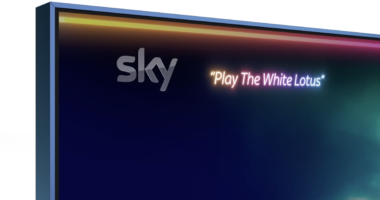

France’s competition authority says that Google must go back to the bargaining table to negotiate a rate that the search giant will pay to link to articles on French news sites. So far, Google has flatly refused to pay fees to link to news articles, despite a new EU copyright directive designed to force Google to do so.
ARS TECHNICA
This story originally appeared on Ars Technica, a trusted source for technology news, tech policy analysis, reviews, and more. Ars is owned by WIRED’s parent company, Condé Nast.
France was the first country to transpose the EU’s order into national law. Google read the French law as allowing unlicensed use of the headline of a story, but not more than that. So in September, Google removed the “snippet” that often appears below headlines from its French news search results, as well as thumbnail images.
“We don’t accept payment from anyone to be included in search results,” Google wrote in a September blog post. “We sell ads, not search results, and every ad on Google is clearly marked. That’s also why we don’t pay publishers when people click on their links in a search result.”
French news publishers cried foul. The goal of the French law, after all, was to get Google to give them money, not to make their articles less conspicuous in search results. So they complained to the French Competition Authority. In a preliminary order Thursday, the agency said that Google’s new strategy represented a “likely” abuse of its market power.
“Since the European Copyright law came into force in France last year, we have been engaging with publishers to increase our support and investment in news,” Google executive Richard Gingras said in an emailed statement. “We will comply with the FCA’s order while we review it and continue those negotiations.”
The French Government Wants Google to Pay Up
Google must begin negotiations with news organizations within three months and send the competition agency monthly reports on its progress.
During negotiations, Google must reinstate snippets in news article search results. Google will be required to retroactively pay news organizations for linking to them, going back to October 2019, at whatever rate is determined in the negotiations. The regulator is also ordering Google not to alter the indexing, classification, or presentation of “protected content”—e.g. French news articles—in its search results.
Thursday’s ruling was a preliminary decision designed to protect French newspapers from Google’s allegedly abusive practices while the competition authority works on its ultimate ruling on the legal merits. Google controls more than 90 percent of the French search market, and the agency says that makes it likely to hold a dominant position. Thursday’s decision held that Google’s recent actions were “difficult to reconcile” with the new French copyright law, which was designed to generate payments from technology platforms to news organizations.
French authorities are trying to avoid the outcome of a similar law passed in Spain back in 2014. That law tried to force Google to pay Spanish news organizations for linking to them, but Google responded by shutting down the Spanish version of Google news. Traffic to Spanish news sites fell as a result, with smaller news publications taking the biggest hit.
The French fight could be a preview of battles in other EU nations, all of which are supposed to pass their own versions of the EU copyright directive, including the controversial provision on linking to news sites.
This story originally appeared on Ars Technica.
More Great WIRED Stories







